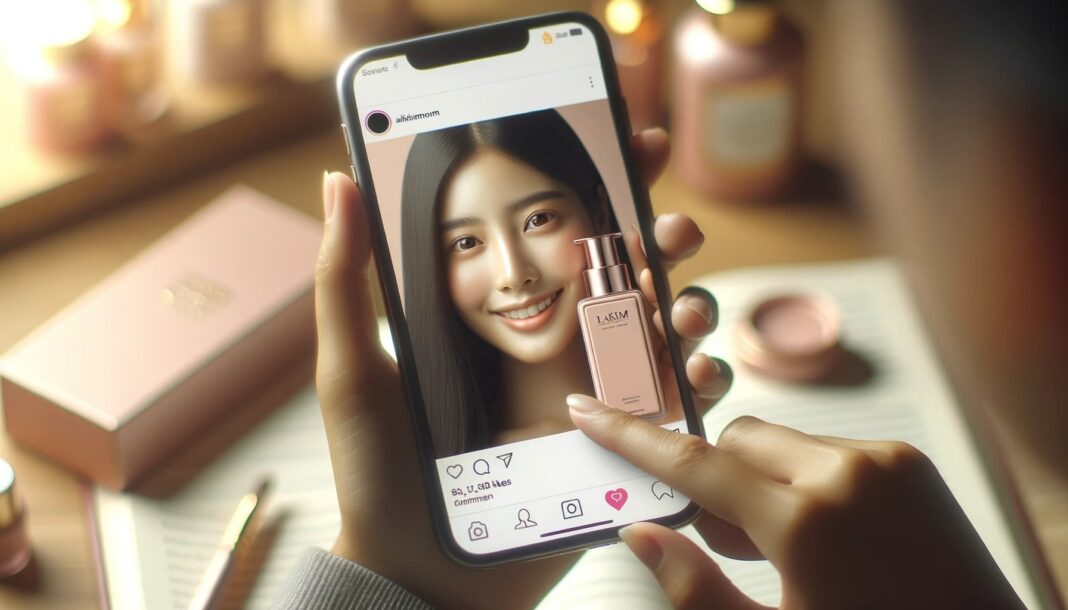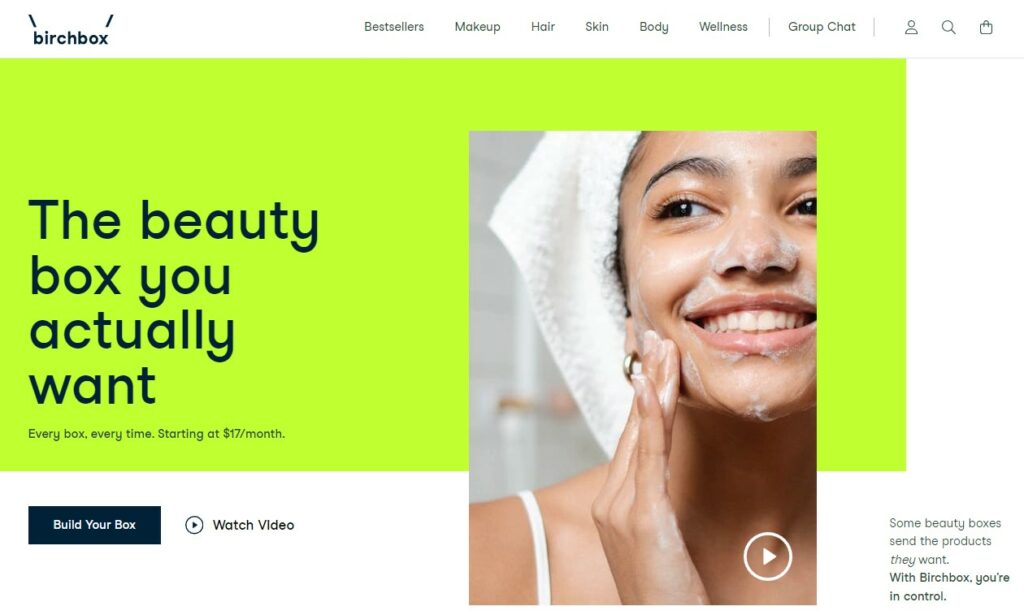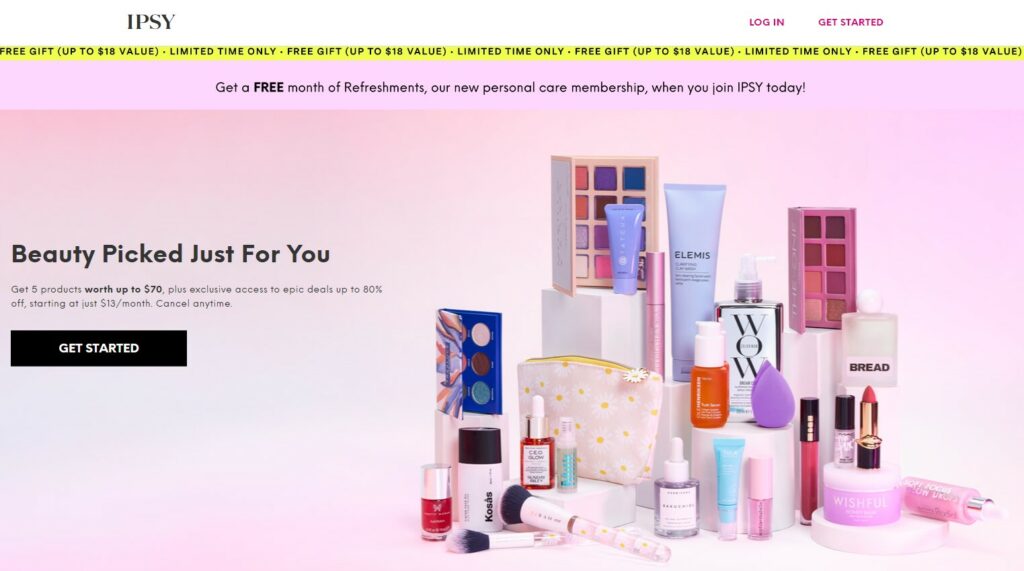Imagine scrolling through your Instagram feed and stumbling upon a captivating photo of a beautifully packaged skincare product. Intrigued, you click on the brand’s profile and discover a world of unique, niche beauty products that cater to your specific needs. This is the power of direct-to-consumer (D2C) e-commerce for niche beauty brands.
In recent years, D2C platforms have revolutionized the way we discover and purchase beauty products. These platforms provide a space for niche beauty brands to showcase their offerings directly to consumers, bypassing traditional retail channels. As a result, consumers are no longer limited to mainstream options but can explore specialized and innovative products that resonate with their individual preferences.
The rise of niche beauty brands in the D2C landscape is fueled by an increasing demand for personalized and tailored beauty experiences. Consumers are seeking out unique formulations, sustainable practices, and inclusive messaging – qualities often found within these smaller-scale brands. With D2C e-commerce as their launchpad, these niche beauty brands are able to connect with a wider audience and thrive in an industry once dominated by established giants.
Evolution of Direct-to-Consumer Sales Models
The traditional retail landscape is undergoing a significant transformation with the rapid rise of direct-to-consumer (D2C) sales. This shift has disrupted the way brands reach and engage with their customers, particularly in the beauty industry.
Traditional Retail Disruption
D2C sales have emerged as a disruptive force, challenging the conventional retail model. In the past, brands relied heavily on intermediaries like wholesalers and retailers to distribute their products. However, D2C allows brands to bypass these intermediaries entirely and sell directly to consumers. This direct connection empowers niche beauty brands by giving them more control over pricing, product availability, and customer experience.
Control Over Pricing and Customer Experience
One of the key benefits of D2C sales is that it enables brands to have greater control over pricing strategies. By eliminating middlemen, brands can set their own prices without having to adhere to recommended retail prices or face price markups imposed by retailers. This not only allows for more competitive pricing but also ensures that customers are getting products at fair value.
Moreover, D2C sales models provide an opportunity for niche beauty brands to create a unique customer experience. With their online stores as the primary touchpoint, these brands can curate personalized shopping experiences tailored to their target audience’s preferences. From interactive product recommendations to seamless checkout processes, every aspect of the customer journey can be optimized for maximum satisfaction.
Technological Advancements Facilitating D2C Growth
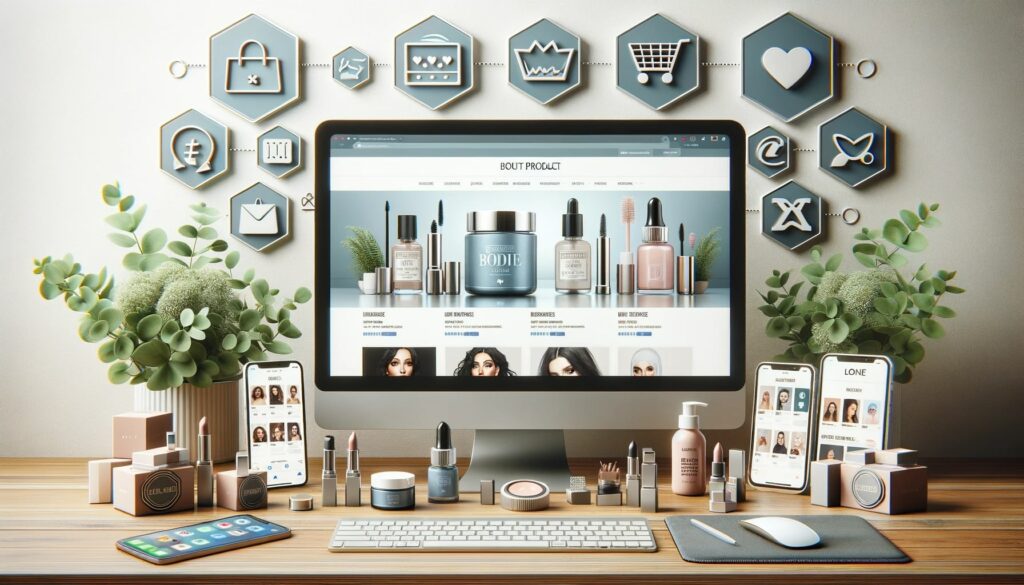
Advances in technology have played a pivotal role in fueling the growth of D2C sales models for niche beauty brands. The widespread adoption of e-commerce platforms and user-friendly website builders has made it easier than ever for these brands to establish their own online stores. They no longer need extensive technical knowledge or significant financial resources to create a digital presence.
The rise of social media platforms has provided niche beauty brands with powerful marketing tools. These platforms enable brands to directly engage with their target audience, build brand awareness, and foster a community of loyal customers. By leveraging influencer partnerships, user-generated content, and targeted advertising, D2C beauty brands can amplify their reach and connect with consumers on a more personal level.
Art Lifting, Fame, and Partnerships
Collaborations with artists and influencers have become a key strategy for niche beauty brands. By partnering with well-known figures, brands can tap into new audiences and gain credibility.
Collaborations with Artists:
Partnering with artists allows beauty brands to infuse creativity and unique aesthetics into their products. These collaborations often result in limited-edition collections featuring artistic packaging that stands out on store shelves. For example, a makeup brand might collaborate with a renowned painter to create a special eyeshadow palette inspired by their artwork. This not only attracts art enthusiasts but also adds an element of exclusivity to the product.
Influencer Collaborations:
Influencers have become powerful marketing tools for niche beauty brands. By teaming up with popular influencers who have a strong following on social media platforms like Instagram or YouTube, these brands can reach a wider audience and build trust among consumers. Influencers often promote the brand’s products through sponsored posts or tutorials, showcasing how they incorporate them into their own beauty routines. This kind of exposure helps to increase brand awareness and generate buzz around the products.
Tapping Into New Audiences:
One of the main benefits of collaborating with artists and influencers is the ability to reach new audiences. Artists bring in their loyal fan base who are interested in both art and beauty, while influencers introduce their followers to the brand’s offerings. This expands the brand’s reach beyond its existing customer base and opens up opportunities for growth.
Building Credibility:
Partnering with well-known figures in the art or influencer industry lends credibility to niche beauty brands. When consumers see that respected artists or trusted influencers are associated with a particular brand, they are more likely to view it as reputable and trustworthy. This association helps overcome any hesitations consumers may have about trying out new or lesser-known brands.
Exclusivity Appeal:
Artistic packaging and limited-edition collections create a sense of exclusivity that appeals to consumers. When a brand collaborates with artists or influencers, it often releases special edition products that are only available for a limited time. This scarcity creates a sense of urgency among consumers, driving them to make a purchase before the products sell out. The unique packaging and design make these products highly desirable among beauty enthusiasts who want something different from mainstream offerings.
Legacy vs Direct-to-Consumer: Top Brands Comparison
Legacy beauty brands, watch out! The rise of direct-to-consumer (D2C) e-commerce has brought a wave of competition to the market. These agile D2C players are challenging industry giants with their innovative marketing strategies and unique approach to reaching consumers. Let’s take a closer look at how established legacy brands compare to these up-and-coming D2C brands.
Established legacy beauty brands face competition from agile D2C players in the market.
Legacy beauty brands have long dominated the industry, relying on traditional retail channels and established brand recognition. However, they now find themselves facing fierce competition from nimble D2C players. These new entrants leverage technology and social media platforms to connect directly with consumers, bypassing traditional distribution channels. By cutting out middlemen, they can offer competitive pricing and personalized experiences that resonate with today’s consumers.
Direct-to-consumer models allow smaller brands to challenge industry giants with innovative marketing strategies.
One of the key advantages of D2C models is the ability for smaller niche beauty brands to compete against industry giants. With limited resources, these emerging brands can’t rely solely on massive advertising budgets or celebrity endorsements. Instead, they focus on building authentic connections with their target audience through engaging storytelling and community-building initiatives.
D2C brands often leverage social media platforms like Instagram and TikTok to create buzz around their products. They collaborate with influencers who align with their brand values and engage in meaningful conversations with their customers through comments and direct messages. This level of personalization helps them establish a loyal customer base that feels connected to the brand’s mission.
Niche beauty brands often prioritize sustainability, transparency, and inclusivity as core brand values.
In contrast to some legacy beauty brands that have faced criticism for unethical practices or lack of diversity, many D2C niche beauty brands prioritize sustainability, transparency, and inclusivity. They understand the growing demand from consumers for products that align with their values.
These brands often use clean and natural ingredients, prioritize eco-friendly packaging, and support ethical sourcing practices. They also emphasize transparency by providing detailed information about their product formulations and manufacturing processes. Inclusivity is another important aspect of their brand identity, as they strive to offer a diverse range of shades and cater to different skin types and needs.
By focusing on these core values, D2C niche beauty brands have successfully carved out a niche in the market. They appeal to consumers who are seeking products that not only make them look good but also align with their personal beliefs.
Spotlight on Beauty Trailblazers: Direct-to-Consumer Brands
In the dynamic world of beauty, Direct-to-Consumer (D2C) brands have emerged as game-changers, reshaping how consumers discover and purchase products. These trailblazing brands, with their innovative approaches, have not only disrupted traditional retail channels but also forged deeper connections with consumers by offering tailored solutions, transparency, and authenticity. Below, we delve into some of these standout brands, shedding light on their unique offerings, market entry, and the impact they’ve made in the beauty realm.
| Brand Name | Year of Entry | Key Offerings | Brief Description | Link |
|---|---|---|---|---|
| Glossier | 2014 | Skincare, Makeup | Founded as an offshoot of the beauty blog “Into The Gloss”, Glossier emphasizes natural beauty and skin-first makeup. | Glossier.com |
| The Ordinary | 2016 | Skincare | A brand under the DECIEM umbrella, The Ordinary offers clinical formulations with transparency and integrity. | TheOrdinary.com |
| Curology | 2014 | Custom Skincare | Curology offers personalized skincare prescriptions, formulated for individual skin needs and concerns. | Curology.com |
| Function of Beauty | 2015 | Custom Haircare | Allows customers to customize shampoos and conditioners based on their hair needs and preferences. | FunctionofBeauty.com |
| Fenty Beauty | 2017 | Makeup | Launched by Rihanna, Fenty Beauty is known for its broad inclusivity across skin tones and gender. | FentyBeauty.com |
| Drunk Elephant | 2012 | Skincare | Focusing on biocompatibility, Drunk Elephant products are designed to optimize the health and look of skin. | DrunkElephant.com |
Explore the stories behind these brands and uncover the unique qualities that have set them apart in a crowded marketplace.
Empowering E-commerce Strategy with Inspirational D2C Brands
Niche beauty brands have made a significant impact on the e-commerce landscape, inspiring other industries to adopt direct-to-consumer (D2C) strategies. These innovative brands have not only disrupted traditional retail models but also provided valuable insights into building strong online communities and engaging customers.
Niche beauty brands inspire other industries to adopt direct-to-consumer strategies.
The success of niche beauty brands in the D2C space has caught the attention of businesses across various sectors. These brands have demonstrated that bypassing intermediaries and selling directly to consumers can be a game-changer. By cutting out middlemen, they are able to offer unique products at competitive prices while maintaining control over their brand image and customer experience.
Key Takeaways:
-
Niche beauty brands have paved the way for other industries to explore D2C models.
-
Direct-to-consumer strategies empower businesses by enabling them to connect directly with their target audience.
-
By eliminating intermediaries, companies can streamline operations and optimize profit margins.
Successful D2C models provide valuable insights into building strong online communities and engaging customers.
One of the key strengths of niche beauty brands lies in their ability to cultivate a loyal customer base through community building. They understand the importance of creating an emotional connection with their audience, going beyond transactional relationships. By leveraging social media platforms and digital marketing techniques, these brands foster engagement, trust, and advocacy among their customers.
Key Takeaways:
-
Building an online community is crucial for long-term success in e-commerce.
-
Niche beauty brands excel at creating personalized experiences that resonate with their target market.
-
By actively listening to customer feedback and incorporating it into product development, these brands build trust and loyalty.
Innovative marketing tactics employed by niche beauty brands set new standards for e-commerce success.
Niche beauty brands have redefined marketing strategies in the e-commerce landscape. They have embraced influencer marketing, user-generated content, and experiential campaigns to create buzz and generate brand awareness. By leveraging these tactics, they are able to reach a wider audience and build a strong brand identity that resonates with their customers.
Key Takeaways:
-
Influencer marketing has become a powerful tool for niche beauty brands to reach their target audience authentically.
-
User-generated content not only fosters engagement but also serves as social proof for potential customers.
-
Experiential campaigns allow brands to create memorable experiences that leave a lasting impression on consumers.
Subscription Boxes: Birchbox, Ipsy, Sprezzabox
Subscription boxes have become a popular trend in the world of e-commerce, offering consumers curated selections of niche beauty products on a regular basis. These boxes provide an exciting and convenient way for customers to discover new brands and products without the hassle of searching through endless options. Let’s take a closer look at three prominent subscription box services: Birchbox, Ipsy, and Sprezzabox.
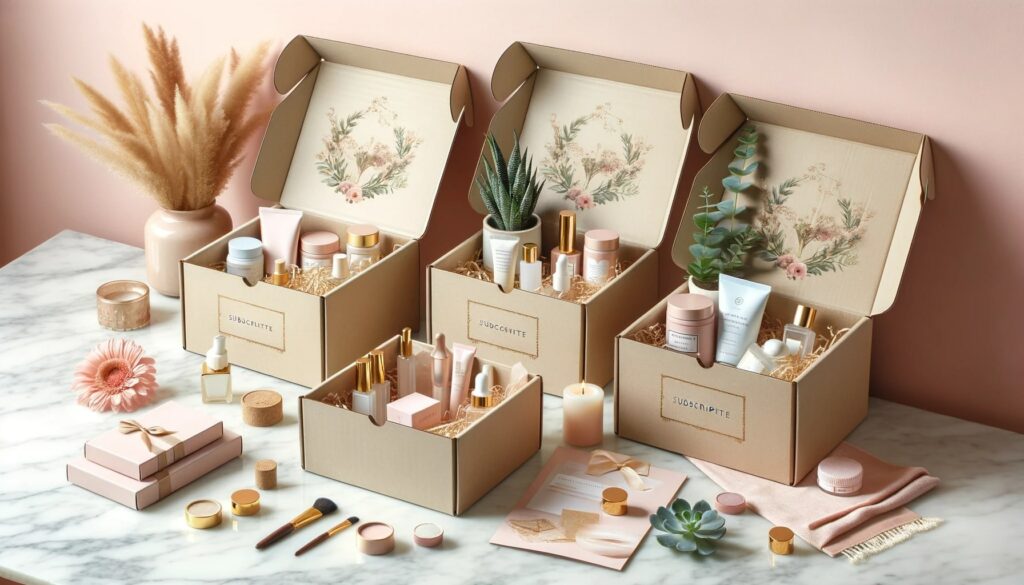
Birchbox: Personalized Samples Revolutionizing the Market
Birchbox is often credited with introducing the concept of personalized samples that revolutionized the subscription box market. Each month, subscribers receive a box filled with beauty samples tailored to their preferences and needs. This personalized approach allows customers to try out different products before committing to full-sized versions.
Pros:
-
Personalized samples catered specifically to individual preferences.
-
Wide range of beauty products from both well-known and emerging brands.
-
Option to purchase full-sized products directly from Birchbox’s online store.
Cons:
-
Some customers may receive samples they are not interested in or do not find useful.
-
Limited customization options for those seeking specific types of products.
Ipsy: Tailored Beauty Experiences for All
Ipsy takes personalization a step further by offering subscribers a bag filled with full-sized beauty products based on their unique profiles. The company collaborates with popular influencers and celebrities to curate these bags, providing customers with an exclusive experience. With Ipsy, individuals can explore new trends and experiment with different looks.
Pros:
-
Full-sized product offerings allow subscribers to fully experience each item.
-
Collaborations with influencers add an element of excitement and exclusivity.
-
Offers additional perks such as access to tutorials, tips, and member discounts.
Cons:
-
Limited availability of certain high-demand items may lead to disappointment.
-
Not all subscribers may resonate with every influencer collaboration.
Sprezzabox: Tailored Fashion for the Modern Man
While Birchbox and Ipsy focus on beauty products, Sprezzabox caters specifically to men’s fashion. Each month, subscribers receive a box filled with stylish accessories, grooming essentials, and lifestyle products. Sprezzabox aims to provide men with curated items that enhance their personal style and keep them up-to-date with the latest trends.
Pros:
-
Offers a wide variety of high-quality accessories and grooming products.
-
Provides subscribers with the opportunity to discover new brands and styles.
-
Affordable pricing compared to purchasing individual items separately.
Cons:
-
Limited customization options may not cater to every subscriber’s specific preferences.
-
Some individuals may prefer more clothing-focused subscription boxes.
Collaborating with Influencers and Customer Feedback
In the world of direct-to-consumer (D2C) e-commerce, niche beauty brands are making waves. To rise above the competition and establish themselves as credible players in the industry, these brands must leverage two crucial elements: influencer collaborations and customer feedback.
Influencer Collaborations: Gaining Exposure and Credibility
Influencer collaborations have become a powerful tool for niche beauty brands to gain exposure and credibility among their target audience. By partnering with influencers who align with their brand values and aesthetics, these brands can tap into a ready-made community of engaged followers who trust the influencer’s recommendations.
Through sponsored posts, product reviews, or even brand partnerships, influencers can showcase the unique qualities of niche beauty products to their dedicated fan base. This exposure not only increases brand visibility but also helps build trust among consumers who value the opinions of influencers they follow.
For example:
-
A small indie skincare brand collaborating with a popular skincare guru on YouTube can attract attention from thousands of potential customers who may have never heard about the brand otherwise.
-
By featuring their products in an influencer’s Instagram story or YouTube video, a niche makeup brand can reach a wider audience that resonates with their specific style or ethos.
Customer Feedback: Shaping Product Development and Brand Direction
Customer feedback plays a pivotal role in shaping product development and overall brand direction for D2C beauty brands. Unlike traditional retail models where there is limited interaction between consumers and brands, D2C allows for direct engagement through various channels like social media platforms or email communication.
By actively seeking feedback from customers, whether it be through surveys, reviews, or social media interactions, niche beauty brands can gather valuable insights into what works well for their target market. This information helps them refine existing products or create new ones that meet customer needs and desires more effectively.
The power of customer feedback lies not only in improving products but also in building a loyal customer base. When customers feel heard and valued, they are more likely to develop a sense of loyalty towards the brand and become advocates for it within their own networks.
For example:
-
A skincare brand may receive feedback from customers about the need for a fragrance-free version of their popular moisturizer. Taking this feedback into account, the brand can develop a new variant that caters to those with sensitive skin, expanding their customer base.
-
By actively engaging with customers on social media platforms and responding to their comments or messages promptly, a niche beauty brand can foster a sense of community and build long-lasting relationships with its audience.
Leveraging Social Media: Directly Engaging with Customers
Social media platforms have revolutionized the way brands interact with their customers. For D2C beauty brands, these platforms provide an opportunity to engage directly with customers, creating a personalized experience that builds loyalty.
Through social media channels like Instagram, Facebook, or Twitter, niche beauty brands can share behind-the-scenes content, product updates, and even conduct live Q&A sessions. This direct engagement not only allows brands to showcase their authenticity but also enables them to address customer queries or concerns promptly.
Moreover, social media acts as a powerful marketing tool for D2C beauty brands by allowing them to reach their target audience organically through hashtags or paid advertising campaigns. By leveraging these platforms effectively, niche brands can establish themselves as go-to sources of information and inspiration within their respective niches.
Predictions and Recommendations for D2C Brands in 2024
As we look ahead to the future of direct-to-consumer (D2C) brands in 2024, it’s clear that the rise of niche beauty brands is only going to continue. These brands have disrupted the traditional retail landscape with their unique offerings and personalized experiences. To stay ahead of the game, here are a few predictions and recommendations for D2C brands:
Firstly, investing in innovative technology will be crucial. As consumer expectations evolve, brands need to leverage cutting-edge tools such as AI-powered chatbots or virtual try-on features to enhance customer experience. By embracing these advancements, you can provide a seamless shopping journey that keeps your customers coming back for more.
Secondly, building authentic connections with your audience through storytelling will be paramount. In a saturated market, consumers crave genuine experiences and want to support brands that align with their values. Share your brand’s story and mission in a compelling way that resonates with your target audience. By doing so, you’ll foster trust and loyalty among your customers.
In conclusion, the D2C landscape is evolving rapidly, driven by niche beauty brands that offer unique products and personalized experiences. To thrive in this competitive market, invest in innovative technology and focus on building authentic connections with your audience through storytelling.
FAQs
How can I determine if a D2C brand is trustworthy?
When evaluating the trustworthiness of a D2C brand, consider factors such as customer reviews and ratings, certifications or awards received by the brand, transparency regarding sourcing/manufacturing processes, and their overall reputation within the industry.
Are niche beauty products more expensive than traditional beauty products?
Niche beauty products can vary in price range just like traditional beauty products. While some niche brands may command higher prices due to their unique ingredients or specialized formulations, others may offer competitive pricing. It’s best to compare prices and read reviews before making a purchase decision.
How can D2C brands ensure customer satisfaction?
D2C brands can prioritize customer satisfaction by offering excellent customer service, providing clear product information, ensuring hassle-free returns/exchanges, and actively seeking feedback from customers to continuously improve their products and services.
What are the advantages of purchasing from a D2C brand?
Purchasing from a D2C brand often offers advantages such as access to exclusive products not available in traditional retail stores, personalized shopping experiences, direct communication with the brand for inquiries or concerns, and sometimes more competitive pricing due to the elimination of middlemen.
Can I trust the quality of products from niche beauty brands?
While it’s always important to do your research when trying new brands, many niche beauty brands pride themselves on using high-quality ingredients and maintaining strict quality control measures. Reading reviews and researching the brand’s reputation can help you gauge the overall quality of their products.
